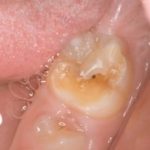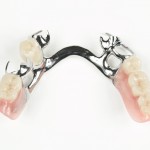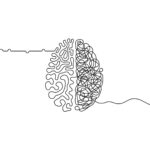
Ally Canaway blogs a systematic review which finds evidence of internet-based psychological interventions being cost-effective for depression and anxiety.
[read the full story...]
Ally Canaway blogs a systematic review which finds evidence of internet-based psychological interventions being cost-effective for depression and anxiety.
[read the full story...]
This review of the effectiveness of oral curcumin products in reducing gingival inflammation and probing pocket depth in adults included 27 RCTs.The findings suggest that curcumin products were as effective as other products. However, a majority of the studies are small and none are at low risk of bias.
[read the full story...]
Talen Wright summarises a recent study investigating microaggressions against transgender individuals as a form of social exclusion. She goes on to suggest how practitioners can reduce microaggressions and foster affirmation and inclusivity in their practice.
[read the full story...]
Andie Ashdown and Theophanis Kyriacou consider the findings of a recent qualitative study which looks at the differences experienced by Black Caribbean and White British people trying to access care for psychosis.
[read the full story...]
This review of the the worldwide prevalence of hypomineralised second primary molars (HPSM) includes 37 studies conducted between 1979 and 2020. The findings indicate a HSPM prevalence worldwide of 6.8% (4.98% to 8.86%).
[read the full story...]
Maisha Kroll reviews a recent qualitative study exploring the help-seeking views relating to depression among older Black Caribbean adults living in the UK.
[read the full story...]
Following tooth loss, it may not be possible to restore the dentition with a fixed prosthesis due to issues with the size and distribution of the saddle area/s, abutment distribution and bone quantity/quality. This problem can be partly resolved using a removable partial denture (RPD), but good retention and stability may be challenging to achieve [read the full story…]

Holly Crudgington reviews a mixed-methods analysis of electronic health records in secondary mental healthcare on harm minimisation for the management of self-harm.
[read the full story...]
This review of high quality studies of oral lichen planus malignant transformation rate included 10 observational studies. The findings found a higher level of malignant transformation in higher quality studies 2.28% (95%CI; 1.49 to 3.20) compared with reviews including lower quality studies 1.14% (0.84 to 1.49).
[read the full story...]
Lydia Poole reviews a recent randomised controlled trial evaluating group metacognitive therapy for depression and anxiety in cardiac patients.
[read the full story...]